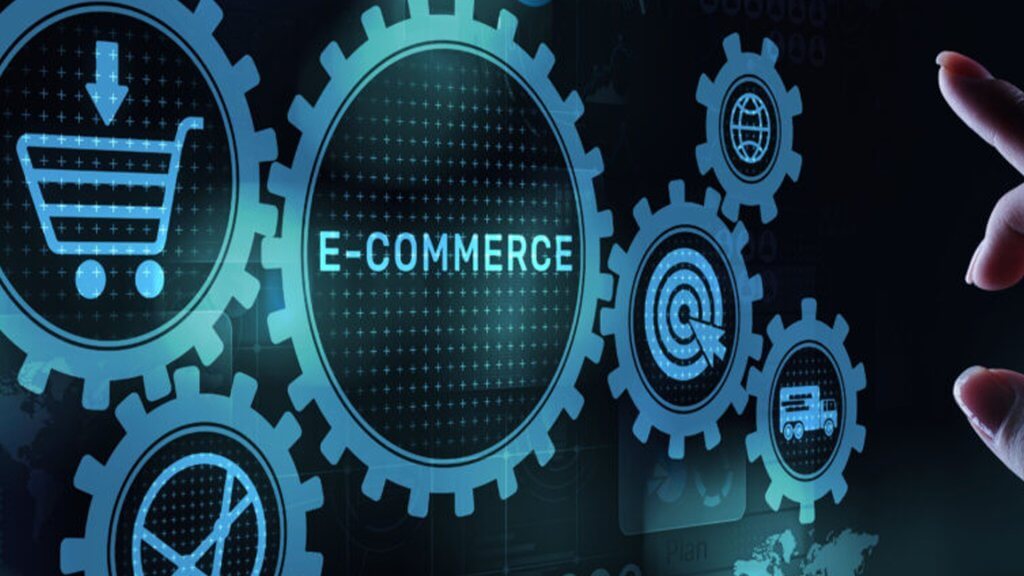
With artificial intelligence (AI) now firmly part of our everyday lives, businesses harnessing the power of this rapidly advancing technology must consider the legal constraints involved. Ben Travers, specialist intellectual property and technology partner at national professional services business Knights, explains how to embrace the changes
Whether we like it or not, AI is here to stay. It can bring a myriad of benefits across a wide range of sectors such as healthcare, retail and banking, and have a massive impact on economic growth.
Now is the time for positive disruptors to be brave – and to take advantage of the significant opportunities that AI provides.
But they also need to be aware of the potential ramifications of the legal, ethical and regulatory challenges involved. Any misstep in this area, particularly in the current mediascape, could land a brand in dangerous territory, and it is our role as legal leaders to be one step ahead of the game, advising on the changing legal landscape and helping to futureproof our clients’ operations.
From protecting a brand’s reputation and intellectual property rights, to understanding copyright and contract issues in the fast-evolving influencer and gaming spheres, there are many ways that AI can trip you up.
Brand reputation:
Brand owners want to control their reputations and relationships more than ever as they look to increase their visibility to potential customers.
AI is creating opportunities to create streamlined, personalised, premium services which can be delivered quickly and at a distance. Focusing on long-term reputation will help businesses to thrive.
Established players in any market, the household names, have the advantage of brand reputation, as consumers have historically trusted them. But all established brands need to deploy new technologies ethically if they are to maintain that trust.
It’s important for brands to monitor their online reputation, responding quickly to any negative feedback. With the evolution of search tools to more directly influence consumer behaviour, the surging popularity of voice search tools and with chatbots extracting product information from numerous sources online, customers could potentially be diverted from your product with a poor review or even be redirected to a competing or counterfeit product.
We talk to our clients about the risks of reputational fall-out and how to balance the power of AI with their responsibilities under current legislation.
Intellectual property (IP) rights:
IP rights, including patents, trade marks and copyright, protect a business’ innovations. Using them without their permission – IP infringement – can land you in legal and reputational hot water.
But what if the creators are machines – and what happens if machines use others’ creations? Imagine, for example, an AI which is instructed to make a song which sounds like a popular artist. It will only be able to do this by consuming the work of the original artist – will it have the necessary permissions and licences to do so?
It’s easy for AI to copy another brand’s advert or visuals, not to mention personal imagery from social media as seen with the emergence of convincing deep fakes. We’ve seen how image AIs can fake montage adverts, capitalising on the Barbie and Oppenheimer movie phenomenon. Brands need to be ready to capitalise on these opportunities whilst ensuring they remain in control of the message. That this AI work was created at a time when many human creators in the creative industries are on strike adds another component to the debate and a possible glimpse into the future.
In recent times, it has been reported that Samsung has also fallen foul of AI systems such as Chat GPT, when its engineers fed proprietary software code into its system to streamline processes. The sharing of this confidential information with the AI system has resulted in that information being more widely available.
We can use existing intellectual property and other legislation to try and control such situations but AI is making it easier for people to commit those infringements almost unknowingly.
It will be interesting to see how those boundaries develop in the entertainment sector, particularly with music, gaming and e-sports. In gaming, if someone imitates your brand or the building you own in a virtual environment, what are your rights?
Data protection:
I’ve seen many clients about to launch exciting products that they’ve worked hard on – then left it until the 11th hour to engage the lawyers.
There’s often a data protection issue which needs to be overcome before innovative tech is launched. It might be a fantastic service or a life-enhancing healthcare product, but it can’t be rolled out as they have relied on people’s data without their permission.
Businesses might think they have a legitimate interest to use the data. We see this issue in the use of AI, where data may be shared with AI providers and in blockchain, where there is a permanent record, which flies in the face of data protection legislation that allows for records to be amended or deleted.
Consumers want to see that businesses are acting responsibly when their personal data is being used.
Influencer marketing:
There’s been a huge increase in interest in influencer agreements, which followed the guidance by the Advertising Standards Authority on unlabelled adverts in recent years. Social media marketing is more invasive than traditional marketing because it feels more like a conversation, consumers feel less like they are being advertised to.
We’ve seen big brands, with a huge procurement process for a TV ad campaign, think nothing about signing an influencer with millions of followers because it felt new and exciting – but without a contract in place.
The advancement of brands now creating their own AI influencers that mimic the human form is an area not traditionally regulated and is having an impact. This “mimicking” also leads into questions about bias and discrimination – both of which are big issues for AI.
Evolving legislation:
As with any new technology, people will push the boundaries – and sometimes they’ll hide behind the tech to ignore the legal or ethical ramifications.
The European Union is working to create a regulatory framework for AI with the EU AI Act, which will be a world first. All artificial intelligence would be classified under four levels of risk, from minimal to unacceptable.
In the UK, there is a great deal of current legislation we can use and adapt, reshaping it to make it relevant, such as the Copyright Act, which has protected works of literature for many years.
People often don’t have a huge amount of respect for copyright; they assume they can simply cut and paste online content. Just because they have easy access to tools which mean that can physically copy this content does not mean that they are legally able to.
The government is working with users and rights holders on a code of practice for copyright and AI, aiming to ensure rights holders are protected, which is a welcome move.
The UK wants to be seen as a friendly place for innovation and innovators. Combining the increased appetite for change among businesses and consumers with a technology that could bring about radical upheaval should boost business opportunities.
The importance of emotional intelligence:
While AI technology can generate human-like responses in interactive conversations, it is clearly no substitute for speaking to a real person.
There’s been a lot of talk about people’s jobs being affected by AI, as we’ve seen with the writers’ strikes in Hollywood, but we need to value people’s emotional intelligence. It can often be about having conversations, understanding people and being more strategic. It is likely that, in time, businesses will come to increasingly value emotional intelligence.
It will be interesting in the creative sector. The joy that people have in music and literature comes in part from the idea of a shared experience, that the creator is reflecting relatable experiences – there’s just not the same connection with an AI-generated poem or lyric.
In healthcare, what will always be valued is the emotional intelligence involved when a medical practitioner talks to their patient.
Future developments:
Many of our clients, across fashion, food and drink, sport, gaming and healthcare, are disruptors in their chosen marketplace. They want to push boundaries and be on the frontier of embracing powerful new technologies.
The benefits of AI are potentially game-changing for people’s lives, such as in healthcare and in tackling environmental and societal challenges.
Consumers now have more choice than ever – living up to and exceeding their expectations will help businesses to stand out in the current climate. It is crucial they put consumer trust at the heart of everything they do.
Our job as lawyers is not to pull the plug on exciting projects but to find solutions. We’re excited by the technology and want it to work – and to find a way to make it sustainable for a business’s future.





















